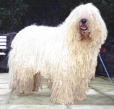Please Help Homeless Pets with a donation of one dollar
Adopting a Dog - Part 2
By: Tippy and Turbo
Continued from Adopting a Dog from a Shelter Part 1.
3. Will this breed or breeds of dog good
in confined spaces
if I live in a small apartment?
Most dogs that are good in apartments are dogs that don't
require a lot of exercise and are relatively small. A
general rule of thumb is that the bigger a dog is the more
space and exercise it requires, although there are some
large breeds that are better in small spaces than others.
Here are some small dog breeds that may fit your bill:
Affenpinscher, Bichon Frise, Bolognese, Border Terrier,
Boston Terrier,
Brussels Griffon, Cavalier King Charles
Spaniel, Chihuahua,
Chinese Crested, Coton De Tulear,
Dachshund, English Toy Spaniel,
French Bulldog, Glen of
Imaal Terrier, Havanese, Japanese Chin, Lhasa Apso,
Papillion,
Pekingese,
Pembroke Welsh Corgi, Pug, Sealyham
Terrier, Shetland Sheepdog, Shih Tzu, Tibetan Spaniel,
Tibetan Terrier and Toy Poodle.
This does not mean that these breeds or their crosses will
be happy staying alone in said apartment for long periods or
with living without exercise. If you live in an apartment
and don't want to put time or care into walking an animal
then what you want is a cat, not a dog.

4. If I live in a rental home, are dogs
allowed? Is there a
specific weight limit?
If you don't own your own house, remember to always check
with your land owner or rental office before you get any
type of pet. Many apartment buildings are no longer allowing
pets in their buildings. This is because of the damage that
pets can cause if they are not properly trained or cared
for. And even some condos have rules about pets as well.
Although it is understandable, a lot of people miss out
because of these restrictions. Not all pet owners are bad
owners; it's a shame that a few bad apples spoiled the lot.
Some landlords have a weight restriction so that you can
only get a dog if it meets or is under the weight
restriction.
Most weight restrictions include small or medium dogs. Large
dogs are typically not allowed. All of the dogs in the
answer to the previous question would fit the bill for a
weight restriction because they are small dogs. Because of
the variance of the weight limit a list of medium dogs that
would fit this requirement is impossible.
5. If I live in the country, will the dog
good on a farm
with wide open spaces with plenty of room to run?
The more active working dogs are good on farms, depending on
whether or not you have animals. Some working dogs are very
aggressive and might not be totally trustworthy around
livestock. However there are some breeds that are very good
and if you live on a farm with plenty of room for your dog
to run and work these would be a good choice for you:
Akbash, Anatolian, Pyrenees,
Komondor,
Kuvaaz, Maremma, and
Tibetan Mastiff.

6. Is the dog a working breed of dog or a
lap dog and which
do I prefer?
Working dogs are typically very active with high energy. If
you live in an area where you have a small yard or no yard
at all, having a working dog probably isn't for you. There
are dog breeds in between the working dog breeds and the lap
dog breeds that might be best for you.
Just keep in mind the basic things that you want from a dog
when selecting your dog. If you want a dog that will sit at
your feet or in your lap all day adoring you, then you most
likely will want a lap dog like these:
Bichon Frise,
Cavalier King
Charles Spaniel, English Toy Spaniel,
Japanese
Chin, Lhasa Apso,
Maltese,
Pomeranian, Toy Poodle,
Pug or
the Shih Tzu.
Please see "Adopting a Dog from a Shelter - Part 3" for more
questions and help.
Perfectly Natural Dog &
Pet Food